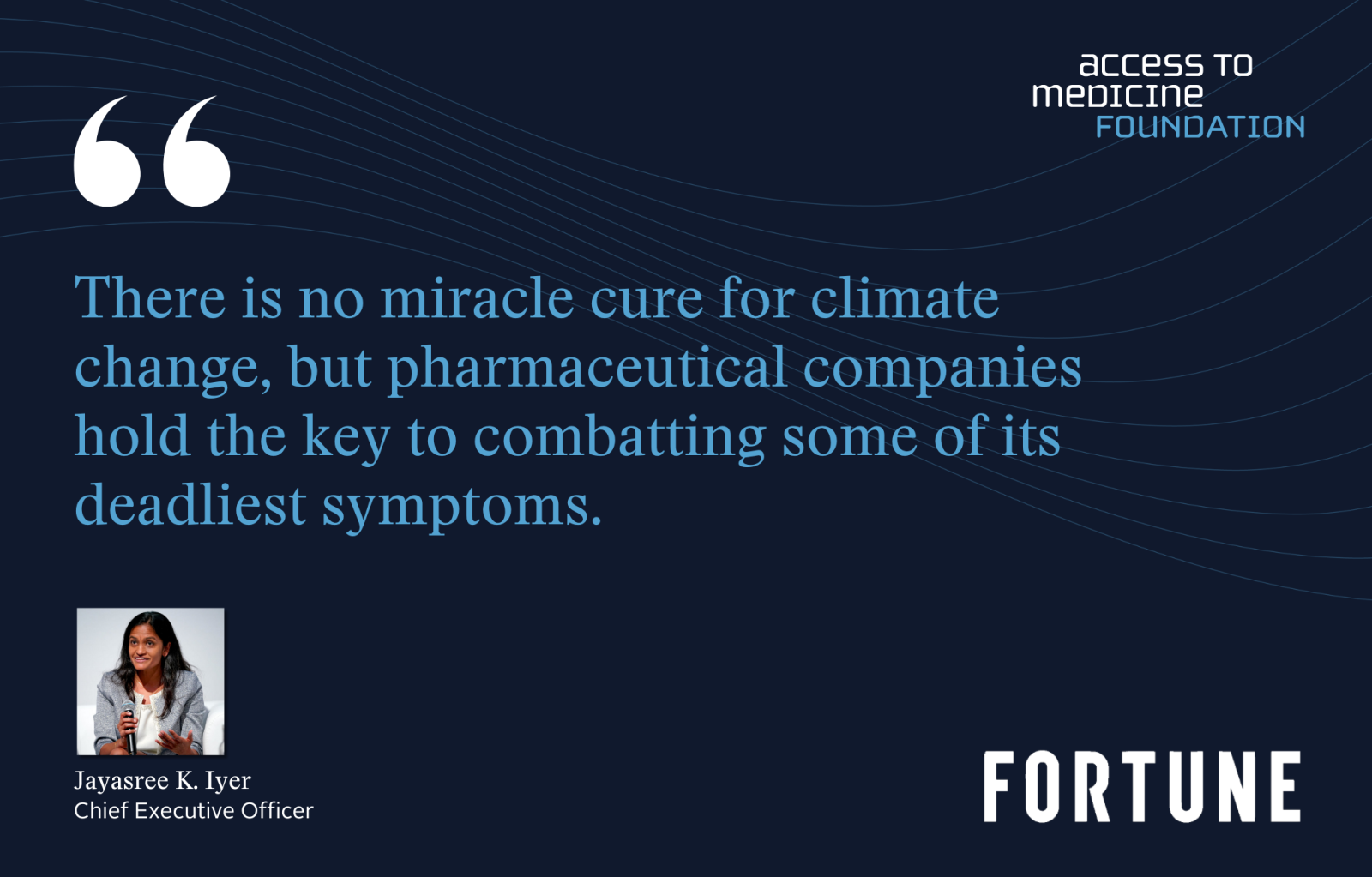Date
11 December 2023
Op-ed: Climate change is unleashing a tsunami of infectious diseases–and we have fewer and fewer drugs that can treat them
Direct links

The op-ed highlights the intersection between climate change and the surge of infectious diseases and drug-resistant infections. The pharmaceutical industry has a unique role to play in addressing the environmental impact and the health consequences of climate change. Currently, however, most efforts within the industry focus on reducing greenhouse gas emissions. Iyer argues that the pharmaceutical industry should broaden its focus beyond emissions reduction and actively engage in combating infectious diseases.
She references the 2022 Access to Medicine Index finding, which shows that only five of the 20 pharmaceutical companies in scope are engaging in research and development (R&D) for emerging infectious diseases other than COVID-19. Should this trend persist, it will leave society vulnerable to future outbreaks.
Iyer also underlines that pharmaceutical companies need to do more to ensure accessibility and affordability of essential medicines, particularly in low- and middle-income countries (LMICs) where access to treatment remains limited, leading to preventable loss of life. She highlights the role of donors and investors in supporting the pharmaceutical industry, including biotech companies and generic medicine manufacturers, to recognise and act upon their responsibility in addressing both climate change and infectious diseases.
She concludes the op-ed by emphasising the pivotal role pharmaceutical companies play in mitigating the health consequences of climate change and calling for a more comprehensive approach that aligns climate action with health commitments to safeguard both the planet and the lives of its inhabitants.
